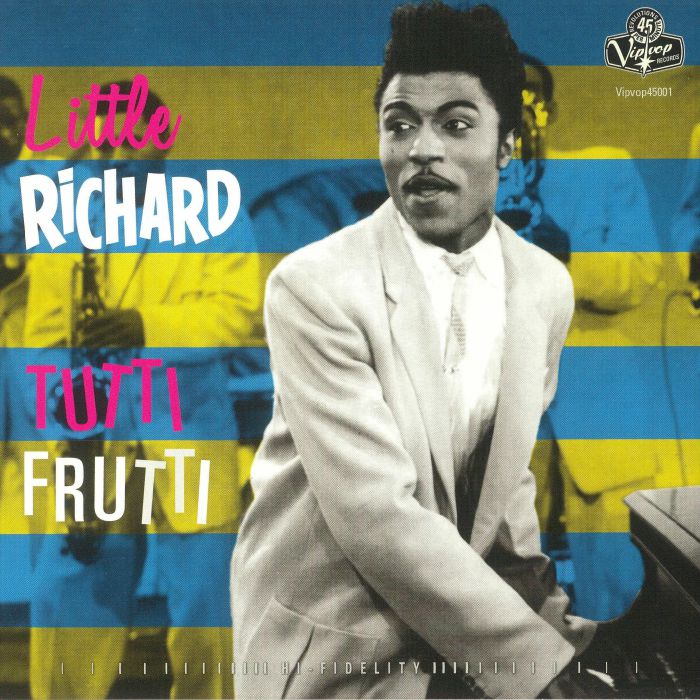 | Tutti FruttiLittle Richard |
Writer(s): Little Richard, Dorothy LaBostrie (see lyrics here) Released: October 1955 First Charted: November 26, 1955 Peak: 17 US, 10 CB, 2 RB, 29 UK, 1 DF (Click for codes to charts.) Sales (in millions): 0.5 US Airplay/Streaming (in millions): -- radio, 31.53 video, 98.65 streaming |
Awards:Click on award for more details. |
About the Song:The 22-year-old Richard Penniman, aka “Little Richard,” was looking for a breakthrough in 1955 when he went into a New Orleans recording studio to lay down his first tracks for Specialty Records. After running through five songs without producing any gems, SS the “bizarrely pompadoured singer-pianist” TB “started extemporizing verses of ‘Tutti Frutti,’ a risque feature of his club sets” NRR that dated back to 1953. SS He said, “I’d been singing ‘Tutti-Frutti’ for years, but it never struck me as a song you’d record.” RS500 Bob Dylan said “Little Richard is the master of the double entendre.” BD He “took speaking in tongues right out of the sweat canvas tent and put it on the mainstream radio.” BD Lyrics like “Tutti frutti, loose booty/ If it don’t fit, don’t force it/ You can grease it, make it easy” were deemed too raunchy, so producer, Bumps Blackwell, tapped local songwriter Dorothy La Bostrie to clean up the lyrics. TB She gave Richard a gal named Sue (“She knows just what to do”) and another named Daisy (“She almost drive me crazy”). TM The results made the song “barely eligible for radio airplay.” DM Even then, “an inspid cover version” by “clean-cut teen crooner Pat Boone” TB was the more successful version on the Billboard pop charts, reaching #12. “Kids scrambled to decipher the meaning of the sounds emitted by the pompadoured piano dervish…but really, the words weren’t nearly as important as the remorselessly frenetic beat, the propulsive piano work and the primal, screaming vocal.” TM Jimi Hendrix, who worked as a sideman for Richard in 1964, said, “I want to do with my guitar what Little Richard does with his voice.” TM Little Richard “fused a unique falsetto and gospel scream that simultaneously oozed sexuality and spirituality. His performances and wardrobe were wild and outlandish. His androgynous stage persona would be reflected by Mick Jagger, David Bowie, Jimi Hendrix, and Prince. FR The man who’d grown up in the South “black, gay, and outrageous…was so far out he was in.” SA His first chart single became a “one of the handful of seminal records that created rock and roll as we know it.” SS Resources:
Related Links:First posted 3/6/2021; last updated 3/31/2023. |








No comments:
Post a Comment